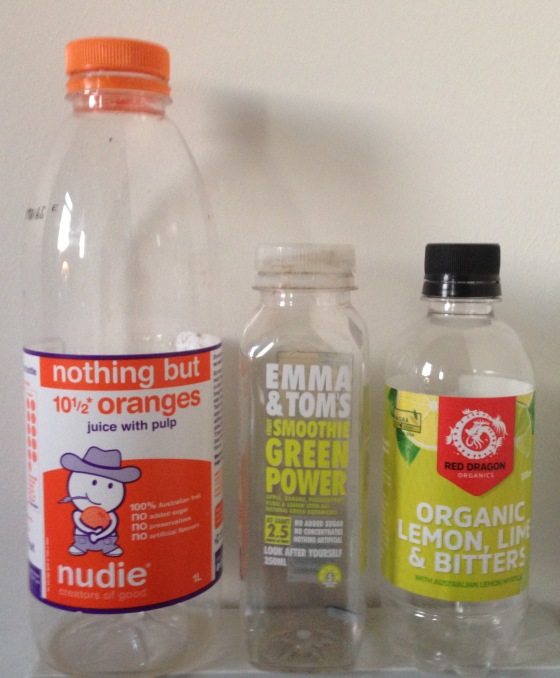Welcome to Day 12!
We’ve discussed ditching your plastic shopping bags, but what about all those small bags we use to store our fruit and veggies? Let’s talk about:
– Unpackaged produce –
Firstly, please desist from buying pre-wrapped produce. Not only does it produce a lot of waste from the polystyrene tray and the gladwrap, the humidity from being so tightly packed in means that often one or more of those capsicums will have gone bad by the time you unwrap them – you just can’t see it from the outside. You want to have a full 360 degree view of your produce to choose fresh, every time.
For loose produce, you can find a variety of plastic free produce bags on sale in many of the bulk food stores I suggested on Day 6, but to give you an idea, here’s a company that stocks produce bags, amongst many other items: https://www.onyalife.com/product/reusable-produce-bag-8pack
If your purse is spent after your eco-shopping spree, another alternative to the bag is just to ask for – or bring – a box to transport your produce.
Apart from bulk stores and farmers markets, there’s also another way you can source your produce through exchange. If you’ve got an abundance of feijoas growing in your backyard and not even your workmates will eat them anymore, a weekend food swap could be just the ticket.
What is a food swap?
A food swap is a weekend community stall that gives you the chance to swap your food trash for someone else’s treasures, namely a lifetime supply of kale for some delicate finger limes or maybe a jar of homemade marinated olives. You don’t need to book in ahead, just turn up on the day. It’s also a nice way to get to know your community and see what’s growing in your area.
Sold! Where are they?
The Moreland Food Network have a good list of food swaps in Moreland and beyond: http://www.morelandfoodgardensnetwork.org/p/victorian-food-swaps-z.html
In Hume, Enviro Champ Polly is doing us proud having set up her own food swap in Sunbury – so if any of these options seem to far away for you, maybe you could do the same! You can find her on the Facebook at Harvest Sunbury. Go champs!

